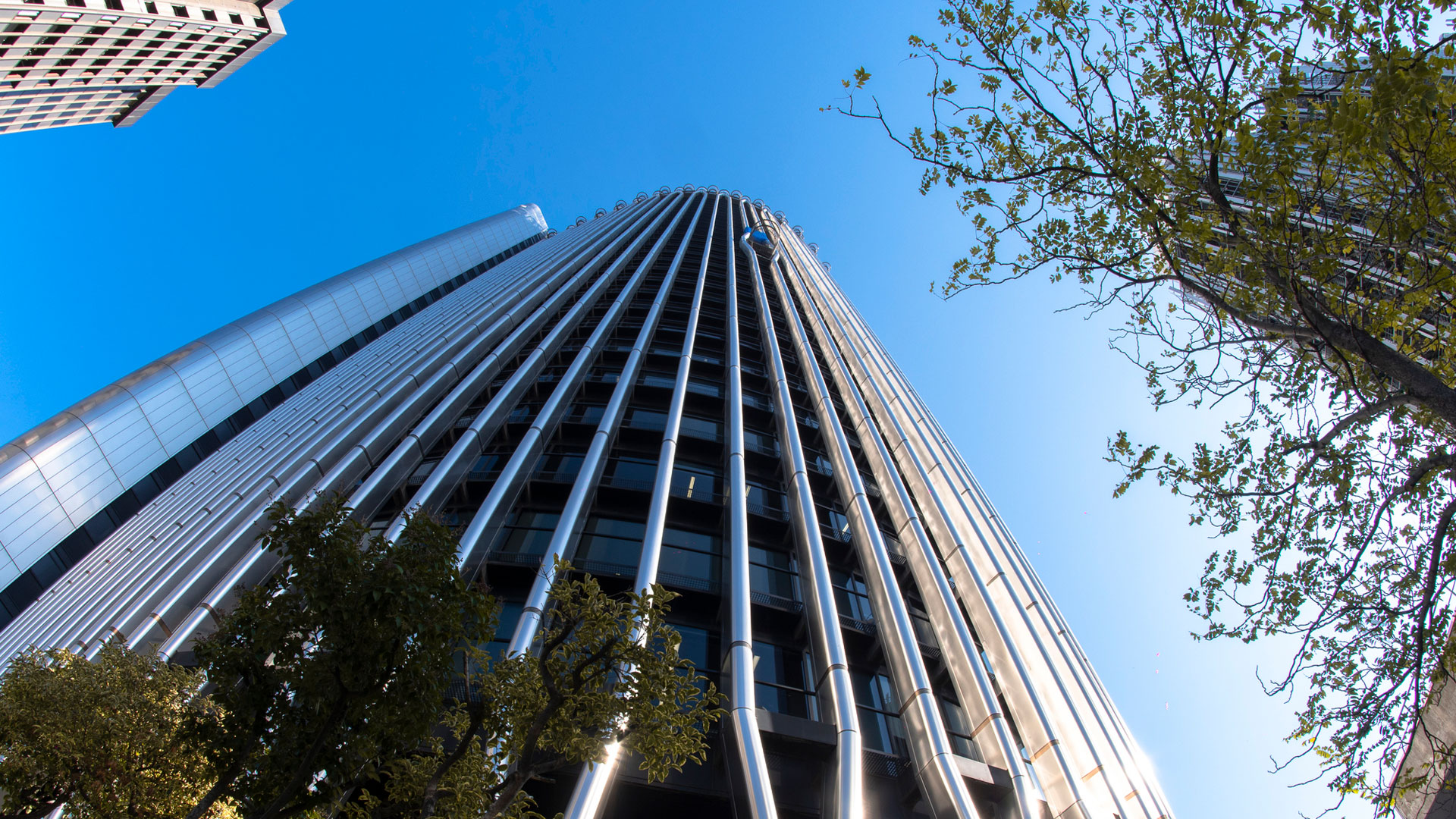09.12.2024 | Paradigm shift in European energy policy?
EU energy policy vs. security policy
24 February 2022 marks a paradigm shift for Europe's geopolitical set-up. Among other things, the war in Ukraine has led a paradigm shift in the energy system of the European Union, starting with a major act of economic sabotage against Nord Stream 1 and 2 and the disruption of major gas supplies, leading to unprecedented price spikes, massive state market interventions including the nationalisation of systemic European energy companies, and transatlantic LNG flows replacing east-west natural gas flows via pipelines.
While in 2022 and 2023 the EU and EU member states focused on emergency legislation to keep the lights on and the heat in, we expect a more strategic approach to security of supply to emerge under the new European Commission.
The new geopolitical environment has influenced the set-up of the new European Commission which is in office since 1 December 2024. And it will likely be reflected in the legislation the European Commission is going to propose during the new 5-year legislative cycle which started with the European election in June 2024.
The new European Commission: “Leyen II”
The European Parliament elections saw a shift from left to right, with the centrist EPP and the parties to its right - ECR, PfE and ENS - gaining seats at the expense of the liberal RenewEurope and the Greens. After securing the support of EU member states and the European Parliament in July, incumbent European Commission President Ursula von der Leyen presented the organisational chart for her next European Commission ("Leyen II"). After some political wrangling, Leyen II was approved by the European Parliament on 27 November 2024 with a lacklustre 370 votes in favour - out of a possible 720 votes.
The most obvious consequence of the war in and around Ukraine is the creation of a European Commissioner for Defence (and Space). This reflects the European Union's desire not only to create synergies between the defence industries of the 27 EU member states, but also to anticipate political pressure from newly elected US President Donald Trump. During his last presidency, Trump repeatedly criticised what he saw as inadequate defence spending by some EU member states. The newly created post will be held by Andrius Kubelius, a conservative politician from Lithuania.
Kaja Kallas, a liberal politician from Estonia, will be the next EU foreign minister, whose official title is High Representative of the Union for Foreign Affairs and Security Policy. She is considered a foreign policy hawk and in her "mission letter" - the personalised job description issued by von der Leyen - she has been tasked with building a "true European Defence Union".
Dan Jørgensen, a Danish social democrat and future Commissioner for energy (and Housing), has been tasked with ensuring "that Europe’s industrial transition towards net zero is powered by an energy system with homegrown, clean electricity" through a so-called Electrification Action Plan. In parallel, he is to present a roadmap for ending Russian energy imports. His mission letter also includes a review of the EU's existing security of supply framework to adapt it to the new geopolitical context and emerging risks, such as cyber-attacks and the protection of critical infrastructure.
EU legislative cycle 2024 – 2029
One of the core elements of Ursula von der Leyen's Political Guidelines 2024 - 2029 is the European Prosperity Plan, which combines sustainable prosperity and competitiveness. It is based on the so-called Clean Industrial Deal, which combines the implementation of the European Green Deal - the strategic theme of Leyen I - leading to net climate neutrality by 2050 with a framework for competitive industries and quality jobs. According to von der Leyen's political guidelines, the Clean Industrial Deal will focus on supporting and creating the right conditions for businesses and ensuring access to cheap, sustainable and secure energy. So far, it remains unclear what the Clean Industrial Deal will mean in practice. Fortunately, the European Commission will publish a strategy document within the "first 100 days of the mandate" of the European Commission, i.e. in March 2025.
EU energy security fitness check
2024 was a busy year with elections around the world attracting media attention; during this time, and especially during the interregnum between Leyen I and Leyen II, the European Commission services started to prepare future legislation. To this end, the Directorate-General for Energy (DG ENER) launched a public consultation in September 2024 to review the EU's existing security of supply framework and adapt it to the new geopolitical context. The consultation was open to the public and closed on 26 November.
The main pillars of the existing EU energy security legislation are the EU Gas Security of Supply Regulation and the EU Electricity Risk Preparedness Regulation. These two laws were adopted in 2017 and 2019 respectively. Therefore, the European Commission considers that an evaluation ("fitness check") is necessary to internalise the lessons learned from the COVID-19 pandemic and the 2022 energy crisis. Furthermore, an evaluation is considered essential to prepare for the changing landscape due to the EU's energy transition and the political will to reduce dependence on Russian energy imports.
The consultation included more than 100 questions. The aim was to assess the functioning of the two energy security regulations against five criteria: effectiveness, efficiency, relevance, coherence and EU added value / subsidiarity. By assessing the performance of the EU energy security framework during the energy crisis and energy transition, the European Commission aims to identify possible shortcomings, but also synergies and possible efficiency gains.
As well as assessing how the EU's energy security framework has worked in the past, the consultation will also look to the future, taking into account the dynamic changes taking place in the EU's energy landscape, such as the new challenges posed by the integration of non-Russian gas suppliers, decarbonisation, climate change adaptation and electrification. The Commission also invites participants to give their views on the impact of the 14 megatrends identified by the European Commission's Joint Research Centre (JRC). The JRC carries out research to provide independent scientific advice and support to European Union (EU) policy making.
The role of Switzerland
The public consultation will also assess energy cooperation between the European Union and neighbouring countries, such as the contracting parties of the Energy Community, a supranational energy organisation that brings together countries in south-eastern Europe as well as Georgia, Moldova and Ukraine.
From Axpo's point of view, the consultation was an opportunity to highlight the important role played by the Swiss energy industry in the continental European energy system. While it may be legitimate to raise concerns about potential energy security risks associated with possible future electricity imports from third countries, a clear distinction should be made between well-connected third countries such as Switzerland – whose energy security measures and policies are converging with those of the EU – and other third countries. It would certainly be beneficial for the EU's (future) energy security architecture to reflect this convergence, and it would be mutually beneficial for the EU and Switzerland to explore avenues for deeper cooperation on energy security.
Given Switzerland's central geographical position in Europe and its crucial role as an electricity hub in the synchronous grid of continental Europe, as well as its key role in trans-European gas and (future) hydrogen flows, EU-Swiss cooperation on energy security is of great importance for ensuring European security of supply. This is particularly relevant in the light of ongoing developments in the EU energy landscape, including the emergence of new challenges related to gas supplier diversification, decarbonisation, climate change adaptation and the transition to a more electrified energy system.
Existing Swiss-EU energy security cooperation: gas
The EU Gas Security of Supply Regulation introduced a solidarity mechanism to be activated (only) in the event of an extreme gas crisis. Its purpose is to help ensure that so-called protected customers, such as households and hospitals, continue to have access to gas even in the worst crises. To this end, EU member states must ensure that the necessary cross-border arrangements (technical, legal and financial) are in place to enable the flow of solidarity gas in the event of an emergency.
So far, only 10 gas solidarity agreements have been concluded between EU member states. The most recent of these is a trilateral gas solidarity agreement between Switzerland, Germany and Italy: it was signed in March 2024 and provides an additional instrument to ensure supply to protected customers in these three countries. It also gives Switzerland access to gas storage facilities in Italy and Germany; for geological reasons, Switzerland doesn't have its own gas storage facilities. At the same time, the so-called Transitgas pipeline through Switzerland closes the gap between Germany and Italy, allowing their complementary gas supply sources to support each other.
Existing Swiss-EU energy security cooperation: electricity
Thanks to its 41 interconnection points with neighbouring EU member states, the Swiss electricity grid is an organic part of the synchronous grid of continental Europe. Unfortunately, this physical integration is not reflected in the institutional set-up between Switzerland and the EU. As the EU's internal electricity market continues to deepen and integrate, this has led to operational challenges for the Swiss electricity system.
In November 2024, the transmission system operators (TSOs) and electricity regulatory authorities (NRAs) of Switzerland and the so-called Core region reached an agreement on the inclusion of the Swiss electricity system in the regional cross-border capacity calculations. The agreement will improve network stability in the whole region and at Switzerland's northern border. The core region is particularly important for the Franco-German electricity exchange and covers 13 EU member states: Austria, Germany, France, Luxembourg, the Netherlands, Belgium, Poland, the Czech Republic, Hungary, Slovakia, Slovenia, Croatia and Romania.
The agreement is particularly relevant in view of the imminent introduction of the so-called "70% rule" set out in the EU's Clean Energy Package in 2019: the 70% rule will apply from 1 January 2026 and stipulates that EU member states must make at least 70% of cross-border capacity available for cross-border electricity trading. Without the inclusion of Switzerland, the 70% rule could have led to unplanned electricity flows in the Swiss grid and reduced import and export capacities, thus worsening security of supply. Unfortunately, the agreement is only an interim solution pending the conclusion and implementation of an electricity agreement between Switzerland and the EU.
Consultation: Energy security architecture – fitness check:
This consultation seeks to evaluate the effectiveness and adequacy of the EU’s energy security framework, ensuring it aligns with current and future challenges. It covers stakeholder feedback on policies, legal measures, and practices related to energy security.
Gas Security of Supply Regulation (EU) 2017/1938:
This regulation establishes rules to safeguard gas supplies within the EU, focusing on prevention, infrastructure standards, and coordinated responses to disruptions.
Electricity Risk Preparedness Regulation (EU) 2019/941:
This regulation mandates EU member states to prepare and coordinate measures to prevent and mitigate electricity crises, ensuring security and minimizing cross-border impacts.
To the regulation
Energy Community:
This community promotes energy cooperation between the EU and neighbouring countries, focusing on market integration, energy security, and the implementation of EU energy legislation in non-EU countries.





